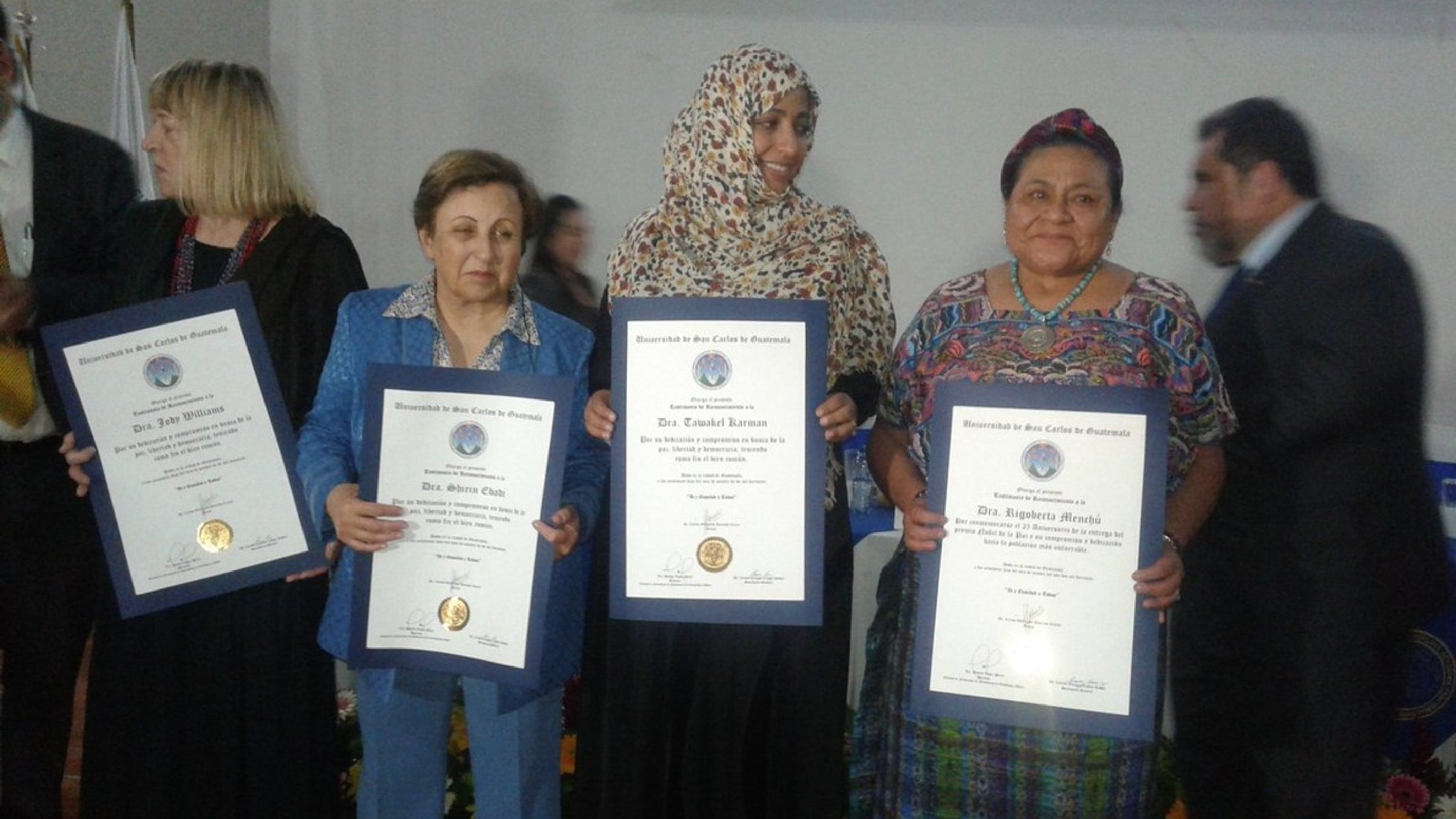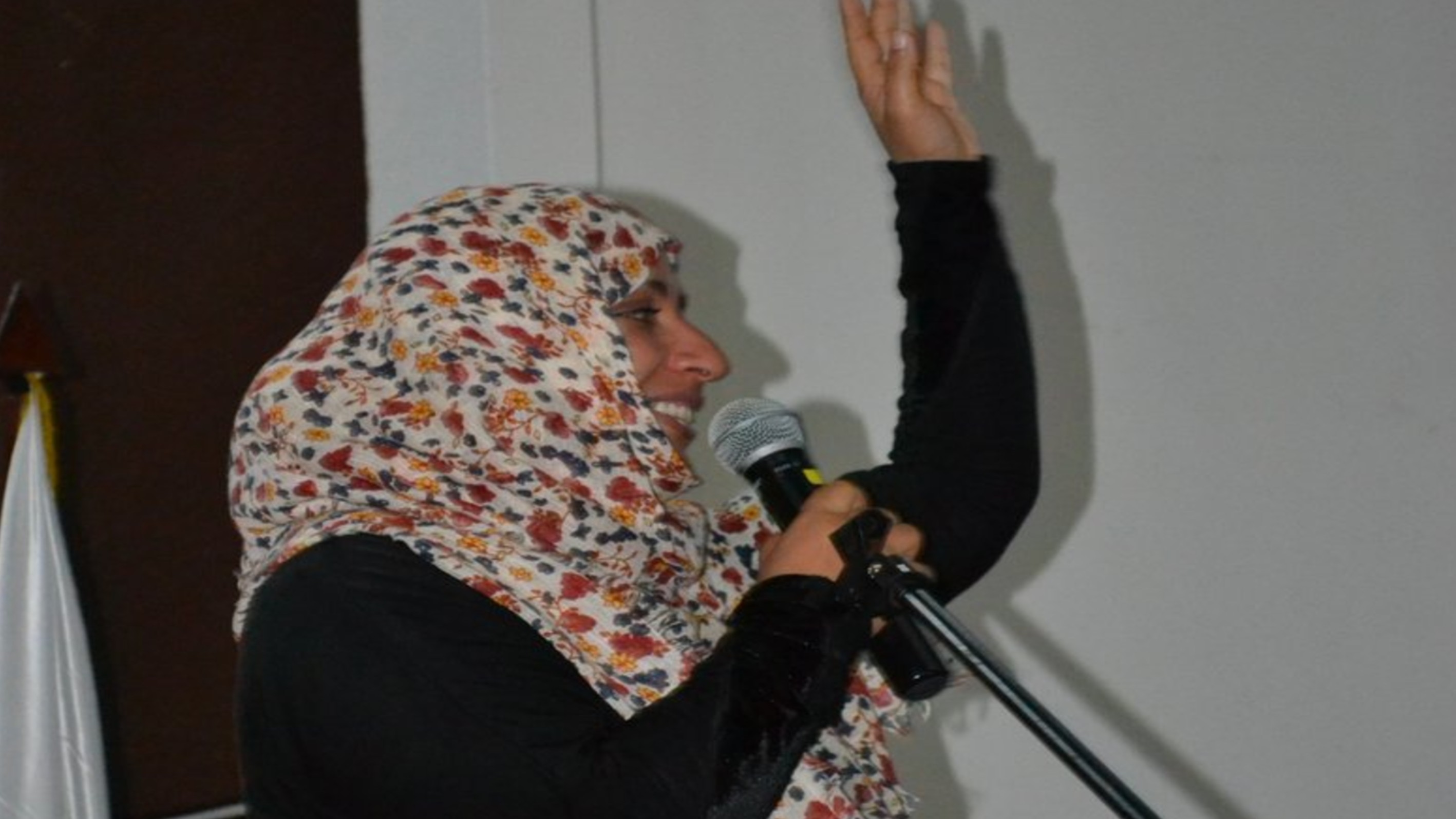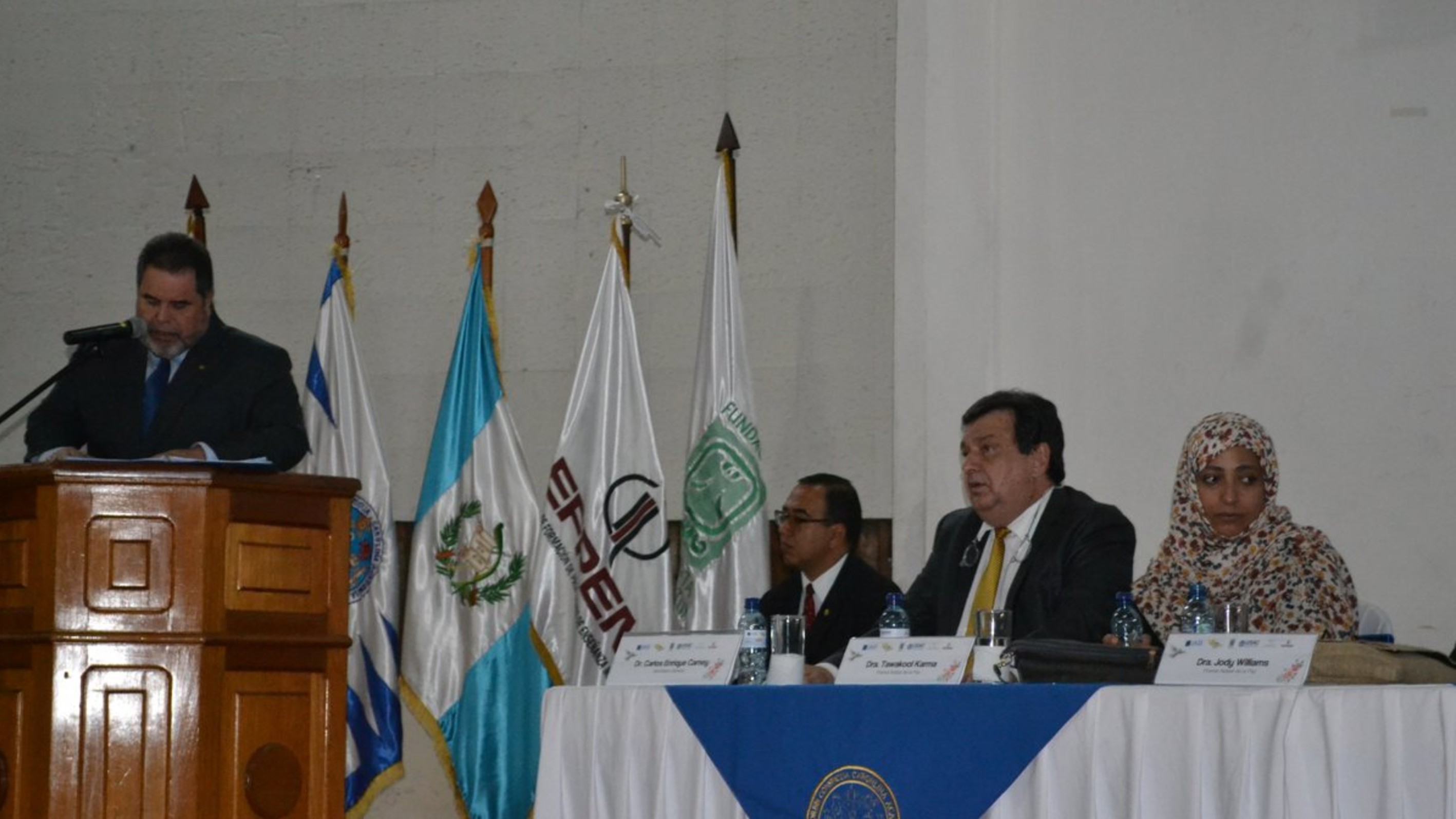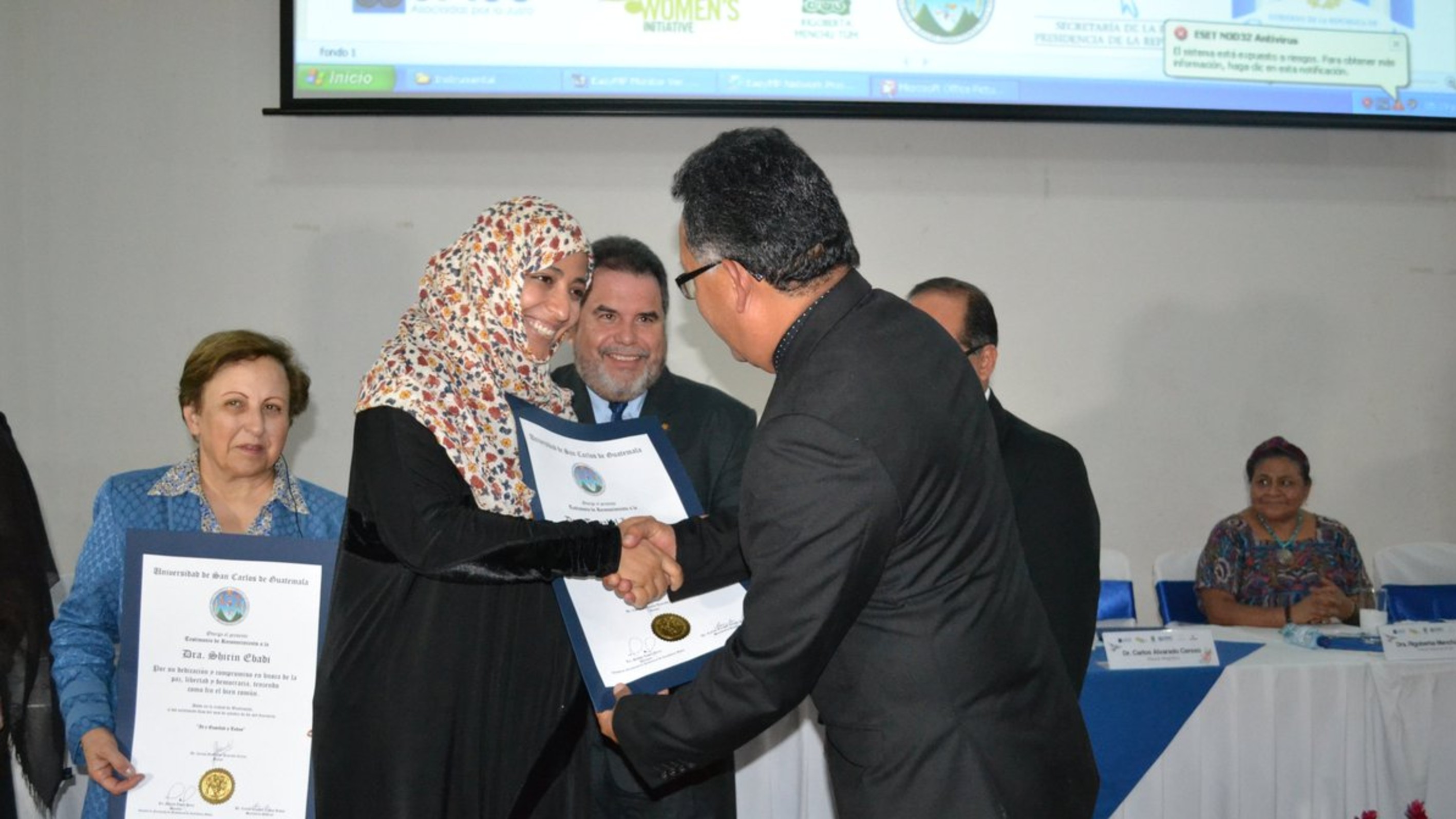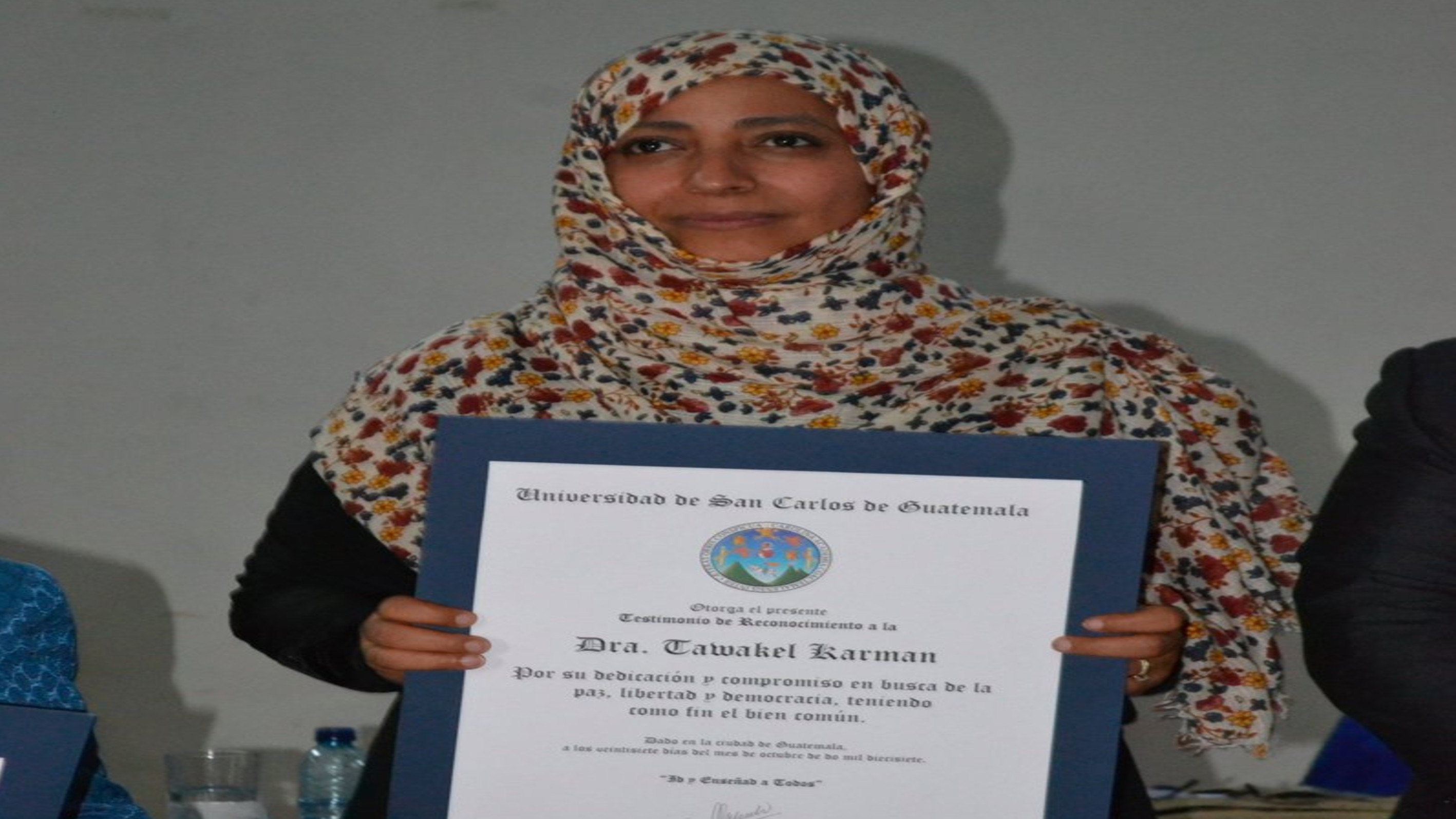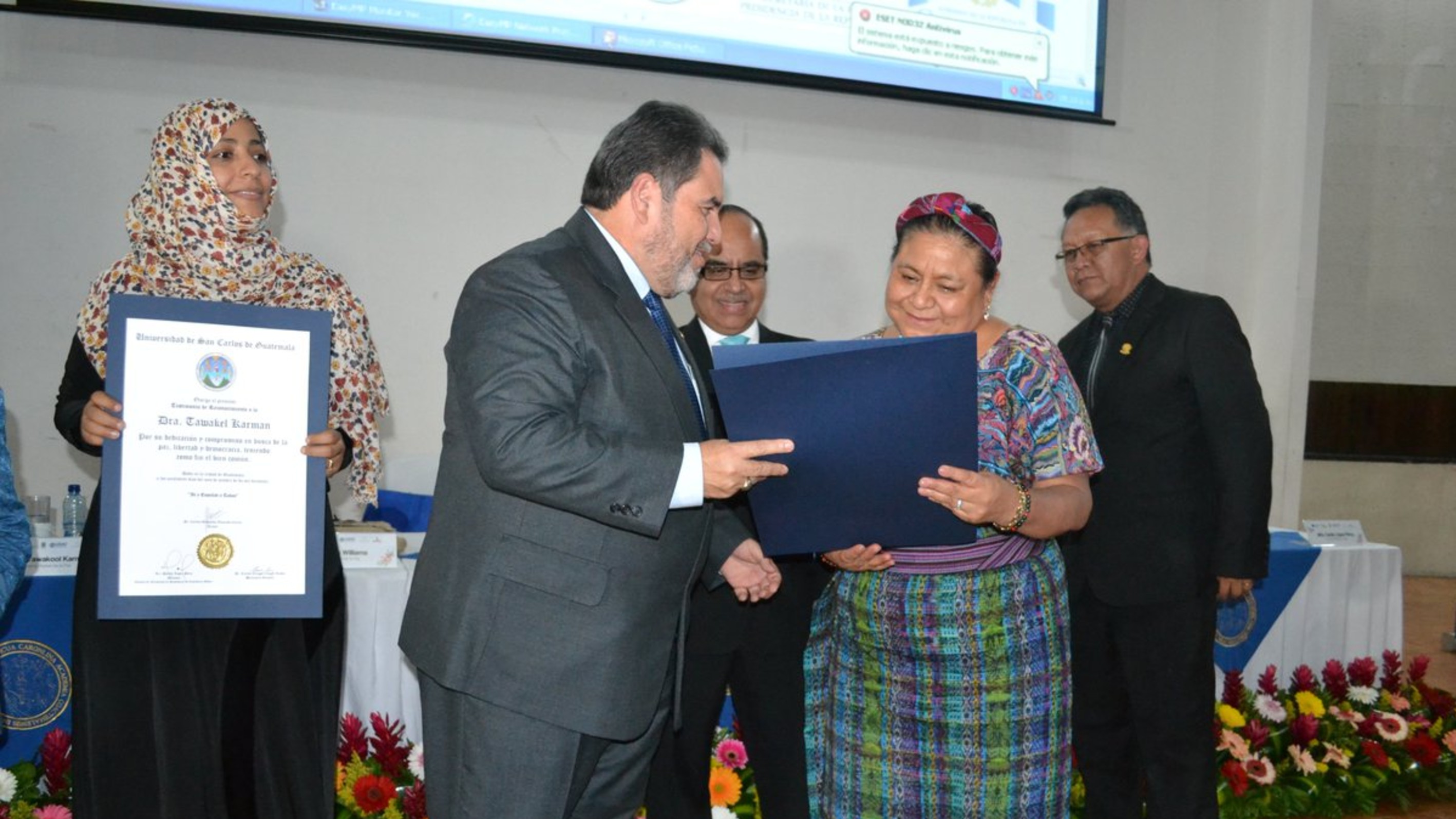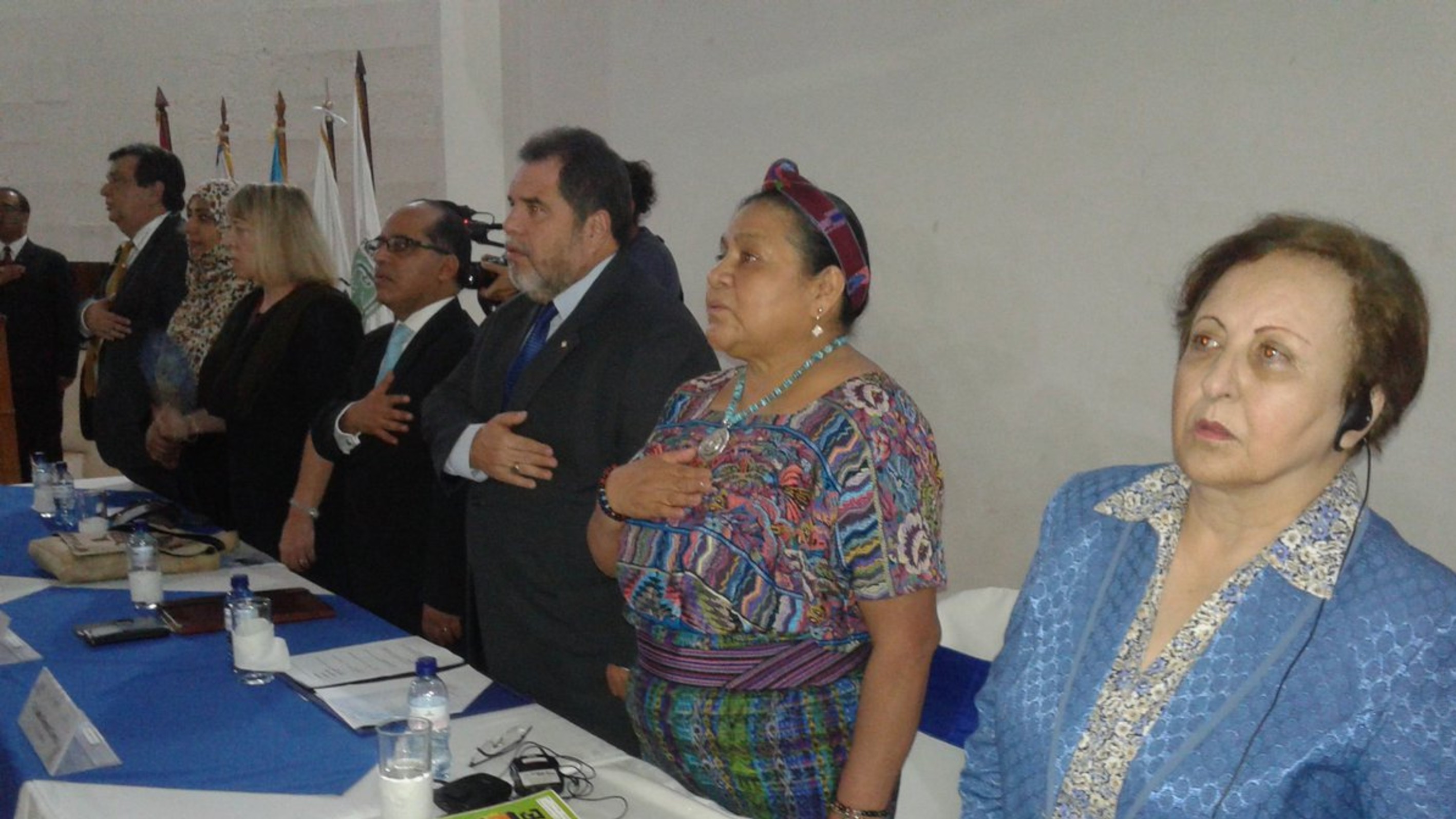News
Tawakkol Karman among four Nobel laureates honored by University of San Carlos in Guatemala
The delegation of the Nobel Women's Initiative, consisting of Nobel Peace laureates Tawakkol Karman (Yemen), Judy Williams (United States), Rigoberta Menchu (Guatemala) and Shirin Ebadi (Iran),
was honored today by the University of San Carlos (USC), one of the oldest universities in Latin America, at the end of their visit to the country.
According to the university, this honor is a recognition of the commitment of Nobel Peace laureates to peace and democracy as a common goal.
In this regard, the public University of Guatemala awarded the 1992 Nobel Peace laureate, Rigoberta Menchú, the professorship in the presence of her three colleagues.
The rector of USC, Carlos Alvarado, congratulated the Guatemalan Nobel laureate for her historic struggle, noting that “the education is advancing in decision-making and strategic actions to understand the country's economic, social and political problems.”
Alvarado pointed out that Guatemalans need to address inequalities from which women in Guatemala are still suffering.
For her part, Menchú paid tribute to the "heroes and heroines who left this university and dreamed of a free and democratic country for all Guatemalans and Mayans."
Menchú added that USC "symbolizes and represents the struggle of young democratic professionals who lost their lives while searching for their ideals during the armed conflict that the Central American country lived between 1960 and 1996.”
The icon of the Arab Spring, Tawakkol Karman, praised the creation of the Rigoberta Menchú Chair, saying that this reflects University of San Carlos’s respect for rights and freedoms of indigenous people.
"Rigoberta and all the women in this country are going to play a very important role in helping to bring peace to this country," Karman concluded.
The Minister of Education, Oscar Hugo López, for his part, described this moment as "historic", noting that this event take place only a few weeks of the 25th anniversary of the win of the Nobel Peace Prize by Menchú.
In this regard, Jody Williams encouraged the university community to "move forward" for "a healthy country."
Iranian human rights defender Shirin Ebadi stressed the importance of establishing such a program, as it "brings people together and helps them unite" at a time when there are those in the world who "intend to create walls that separate us."
Ebadi mentioned that the Guatemalan society has dramatically changed since the last time she visited Guatemala in 2005, pointing out that today’s society is progressing every day because “people have become more aware of justice."
Guatemala is a multicultural and multilingual country composed of four great cultures with 25 linguistic communities: Maya, Xinca, Garífuna and Ladina.
According to data provided by the United Nations, in Guatemala, the indigenous population comprises approximately half of the population (8 of 16 million) and is concentrated in the departments of Totonicapán (98.3%), Sololá (96.4%), Alta Verapaz (92.9%), Quiché (88.8%), Chimaltenango (79%) and Huehuetenango (65.1%).

